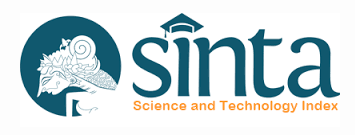KRITIK ILMIAH DALAM PERSPEKTIF ISLAM
Abstrak
In Islam, if you want to gain the world and the hereafter, then let the science. Quite the reverse, use of science and technology geared to specific interests, descriptive and endangering humanity. it is very necessary to build an awareness that science and technology as part of the verses of Allah and a mandate that can not be separated from the responsibility of the creator of the science. With this awareness will bring a commitment to address all forms of science and technology in the area thought that in accordance with Islamic teachings. One key to success is the enthusiasm of Islamic scholarship and counter criticism among Islamic scholars. Of course, criticizing spirit is indispensable for the progress and development of science anywhere. Utilization of science and technology geared to specific interests, descriptive and endangering humanity. Scientific criticism not just throw the spotlight, as a statement of dissatisfaction or stuck on the territory of like or dislike, but must be based on some ethics.
Referensi
Kuntowijoyo. Islam sebagai Ilmu, Bandung: Mizan, 2003
Mahmud, Moh Natsir. Kritik sosial dalam Perspektif Islam, Makassar: Makalah Fakultas Tarbiyah, tt.
Poerawadarminta, WJS. Kamus Umum Bahasa Indonesia, (Cet. V; Jakarta: Balai Pustaka, 1976.
----------, et. Al. Seluk Beluk Filsafat Islam, Cet. I. Bandung: Rosda Karya, 1988
Pustaka Pengembangan dan Pembinaan Bahasa, Kamus Besar Bahasa Indonesia, Cet. II; Jakarta Balai Pustaka, 1984.
Salahuddin. Tradisi Ilmiah, Khasanah Islam yang Terabaikan, Makassar; Makalah Orasi Ilmiah Fakultas Tarbiyah, 2006.
Surojiyo. Ilmu Filsafat Suatu Pengantar, Jakarta: Bumi Aksara, 2005.
Suriasumantri, S. Jujun. Ilmu Dalam Presprektif, Cet. XI Jakarta: Yayasan Obor Indonesia, 2001.
-----------, Filsafat Ilmu Sebuah Pengantar Populer, Cet. IX; Jakarta: pustaka Sinar Harapan, 1999.
Once an article was published in the journal, the author(s) are:
granted to the journal right licensed under Creative Commons License Attribution that allows others to share the work with an acknowledgment of the work's authorship. permitted to publish their work online in third parties as it can lead to wider dissemination of the work. continue to be the copyright owner and allow the journal to publish the article with the CC BY license receiving a DOI (Digital Object Identifier) of the work.





